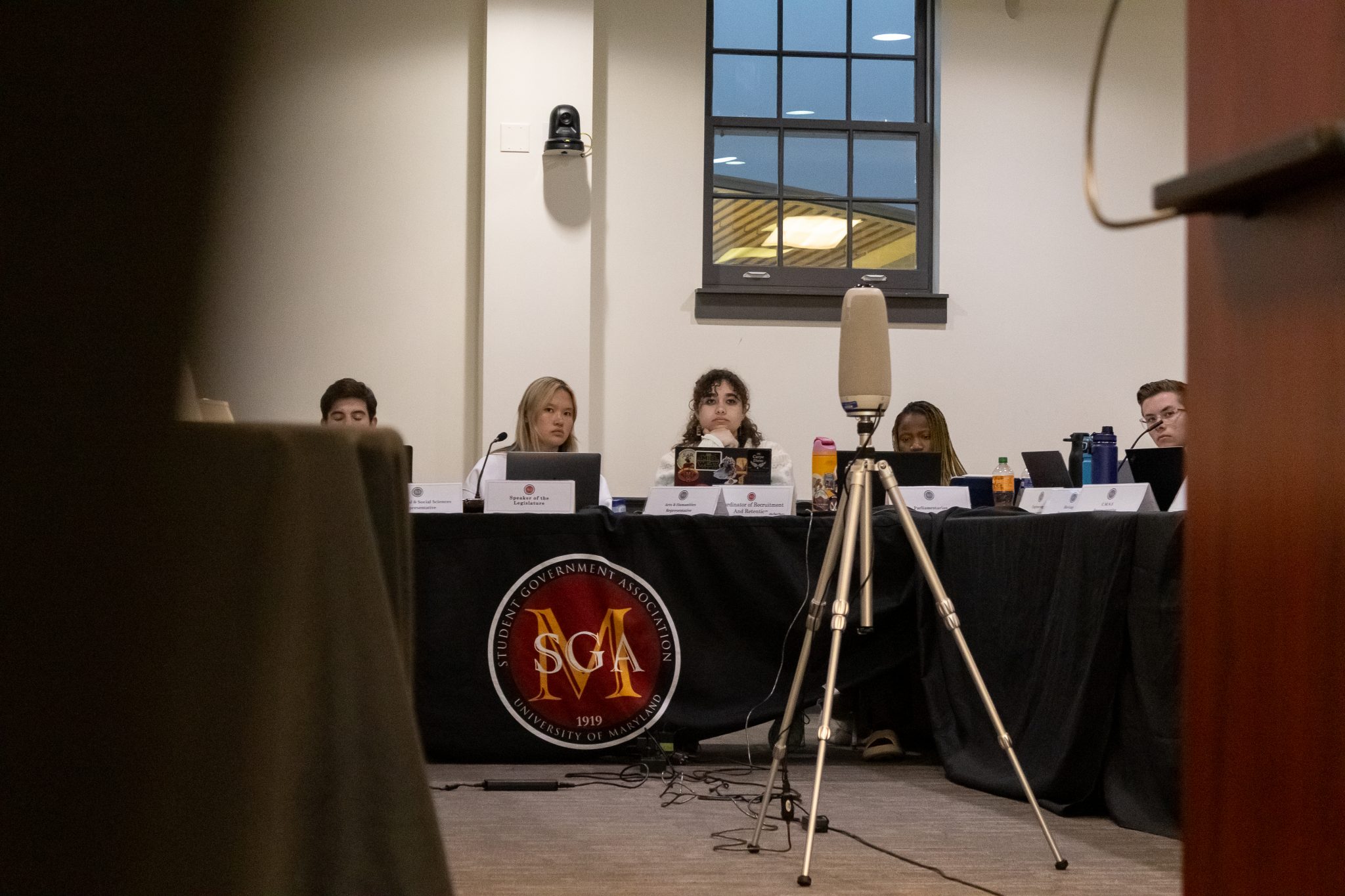Voter turnout in this year’s University of Maryland SGA election increased by about 167 percent from last year, according to a Diamondback analysis of voter counts.
About 6,000 undergraduate students voted in this year’s Student Government Association election, the highest number of voters an SGA election has seen since 2020, according to data from the organization. This year, students voted on community representatives and referendums about a mandatory University Health Center fee and divestment from companies “implicated” in human rights violations.
Dhruvak Mirani, who was elected as the 2025-26 SGA president, said he believes the student engagement regarding divestment played the most significant role in the high voter turnout this year.
[Dhruvak Mirani elected as 2025-26 UMD SGA president]
The divestment referendum called on the SGA to lobby the University System of Maryland Foundation and University of Maryland College Park Foundation to divest funding from companies “implicated” in human rights violations, such as Lockheed Martin and Northrop Grumman, in places including Palestine, Sudan, Yemen and the U.S.-Mexico border.
More than 3,200 undergraduate students, or 55 percent, voted in favor of the divestment referendum, SGA announced April 18. Similar divestment resolutions failed to pass last fall, last spring, in 2017 and in 2019.
Senior marketing and operations management and business analytics major Jannah Nassar, who voted in favor of divestment, said she noticed increased campaigning on the referendum and believes that could have played a factor in the high voter turnout.
Nassar said the divestment referendum also could have been a reason for the higher voter turnout because it gave students a voice on the matter.
More than 650 students signed a petition, circulated by this university’s Students for Justice in Palestine chapter, which demanded the question be on the 2025 election ballot, The Diamondback reported in December.
[UMD students vote in support of divestment referendum]
“[The referendum] shouldn’t be a controversial topic at all,” Nassar said. “It is asking to divest from companies complicit in human rights violations and companies that have broken international law.”
Sophomore mechanical engineering major Ilan Stein said he did not vote in the SGA election last year because it was not as heavily advertised as this year’s election. The campaigning about the divestment referendum prompted him to vote this year, he added.
Stein said he voted against divestment because of how it might impact his future job opportunities in mechanical engineering. He added that this university receives a lot of funding from companies mentioned in the referendum.
“I’m just looking at it merely from a job opportunity sort of thing,” Stein said.
This university has a years-long multi-million dollar financial relationship with major defense contractors such as Lockheed Martin and Northroop Grumman, which gave more than $46 million combined to this university in donations and research funding from 2010 to November 2023, The Diamondback reported in June.
Mirani, a junior computer science and government and politics major, said many groups may have overestimated the SGA’s influence on this university and its foundations’ investments.
The results of the referendum have no bearing on the operations or policies of the university or its foundations, this university wrote in a statement to The Diamondback in April.
Mirani said SGA can make its election process more transparent and inclusive by promoting events like executive candidate debates. SGA can do a better job of addressing topics students actually care about throughout the year to achieve higher voter turnout in the future, he added.
“I hope to work on those issues that I think students care about,” Mirani said. “I hope to make SGA a more inclusive and welcoming place.”



